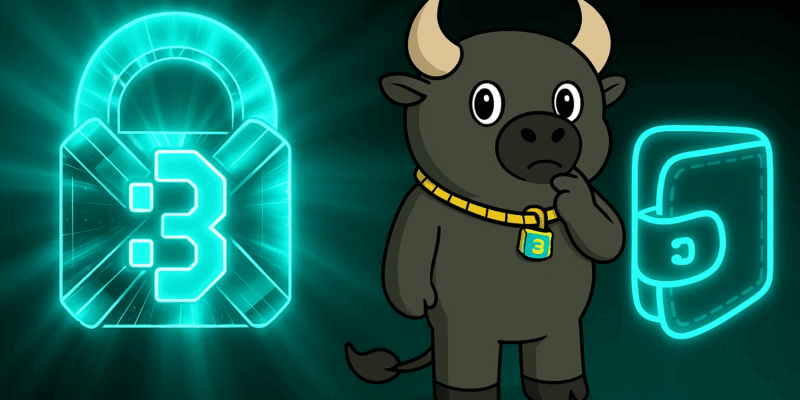What Is a Crypto Address and How to Use It Safely
Every day, thousands of crypto users lose their funds not because of hackers, but because they misunderstand a simple concept: their crypto address. Many think it’s just like a bank account number, copy it carelessly, or send assets to the wrong network. One mistake, and the funds are gone forever.
It happens more often than you’d think. According to industry data, over 20% of crypto users have made at least one transaction error involving a wrong or invalid address. The problem isn’t lack of security, it’s lack of clarity. Most wallets make it complicated to understand what’s actually happening behind the scenes, leaving users confused and vulnerable.
This guide will explain what a crypto address really is, how it works, and how to use it safely with Bitlock Wallet, a non-custodial wallet designed to protect your assets and simplify crypto ownership. With Bitlock, your private keys never leave your device, and if you ever need help, you get real human support, not a chatbot. Understanding your crypto address is the first step to becoming fully in control of your digital wealth.
What exactly is a crypto address and how does it work?
A crypto address is a unique digital location where your cryptocurrencies live. It works like a home address on the blockchain anyone can send you tokens if they know it, but only you can access what’s inside. When you create a new wallet in Bitlock Wallet, the app uses advanced cryptography to generate two keys: a public key and a private key. The public key becomes your visible address, while the private key proves that you are the rightful owner of the funds.
Each transaction you make depends on this relationship. When you send crypto, your wallet signs the transaction with your private key, and the blockchain uses your public key to confirm that it’s legitimate. This verification system ensures that no one can spend your funds without permission.
In Bitlock Wallet, everything happens locally on your device. Your private keys never leave your phone; they are encrypted using AES-256 and SHA-256 protocols and stored in secure memory. Even if Bitlock’s servers were breached, attackers would find nothing of value because no private data is ever uploaded or stored.
What makes a crypto address powerful is its decentralization. You don’t need a bank or an institution to create one. In seconds, Bitlock gives you full access to the blockchain economy, from sending and receiving tokens to swapping or bridging across networks. The system is transparent, fast, and entirely under your control.
Can someone hack my crypto address?
A crypto address cannot be hacked directly. It is built from strong cryptographic math that no one can reverse. What gets hacked are users, not blockchains. When someone loses funds, it usually happens because they shared private information or used an unsafe app.
Your crypto address is public and safe to share. It only shows where tokens can arrive, not how to take them. The danger begins if someone gets your private key or recovery phrase. That key signs every transaction. Whoever has it, owns the wallet.
Bitlock Wallet eliminates that risk. It stores your private key only on your device, encrypted with AES-256 and SHA-256. No one, not even Bitlock, can read or move your assets. Every action requires your local approval through PIN or biometric verification.
If someone sends you a suspicious link or asks for your phrase, it’s a scam. The blockchain won’t protect you from human error, but Bitlock makes it almost impossible for attackers to reach your keys. Stay alert, and your address stays safe.
What is a non-custodial crypto wallet and why does it matter?
A non-custodial wallet gives you full control of your crypto. No company, bank, or platform can touch your funds. You hold the private keys. You sign every transaction. You decide when and how to move assets.
In a custodial wallet, someone else keeps your keys. They can freeze your account or lose your funds. In a non-custodial wallet like Bitlock Wallet, that never happens. The keys stay on your device, encrypted and secure.
Bitlock Wallet runs without KYC or identity checks. You can trade, bridge, or store crypto freely. Each action stays private and verified only by you. You can read more about this here.
When problems appear, Bitlock connects you with real staff, not a chatbot. You get human help for setup, recovery, or troubleshooting. That makes Bitlock different security and real support in one wallet.
What happens if I send crypto to the wrong address or network?
If you send crypto to the wrong address, the transaction is gone. The blockchain cannot reverse it. Each address is unique and final. No support team or system can pull the funds back.
If you send tokens to the wrong network, the result depends on the wallet. Some wallets lose them forever. Others let you recover them if you hold the same private key on both networks.
Bitlock Wallet reduces these risks. It detects the network before you confirm a transaction. It warns you if the token or chain does not match. You can review everything before sending.
Always double-check the address and network. Copy it from a trusted source. Confirm it twice. Once you press send, the blockchain executes the command instantly. Only accuracy keeps your crypto safe.
How does Bitlock Wallet protect user privacy and funds?
Bitlock Wallet protects privacy through full local control. The app never uploads private keys or recovery phrases. All encryption happens inside the user’s device. Bitlock uses AES-256 and SHA-256 to lock every key and transaction.
Each action needs your PIN or biometric confirmation. No one can move funds without your approval. The system runs without storing emails, IDs, or personal data. That keeps your identity safe from leaks or hacks.
If users need help, Bitlock connects them to real support staff. No automated bots. No scripts. Only trained people who solve issues directly. The result is full ownership, strong security, and private crypto management that stays in your hands.
Our thoughts
Bitlock Wallet stands out in a crowded market. Many wallets claim to offer privacy and control, but few deliver on both. Bitlock does. It keeps user data off servers, gives full key ownership, and still offers real human support when needed.
From a usability standpoint, the wallet feels clear and direct. The setup takes seconds, and each function works without clutter. The absence of KYC lowers friction and keeps the experience true to crypto’s core idea of freedom.
In our view, Bitlock Wallet sets a strong example for non-custodial design done right. It balances simplicity, transparency, and advanced security in a way that builds real trust with users.














